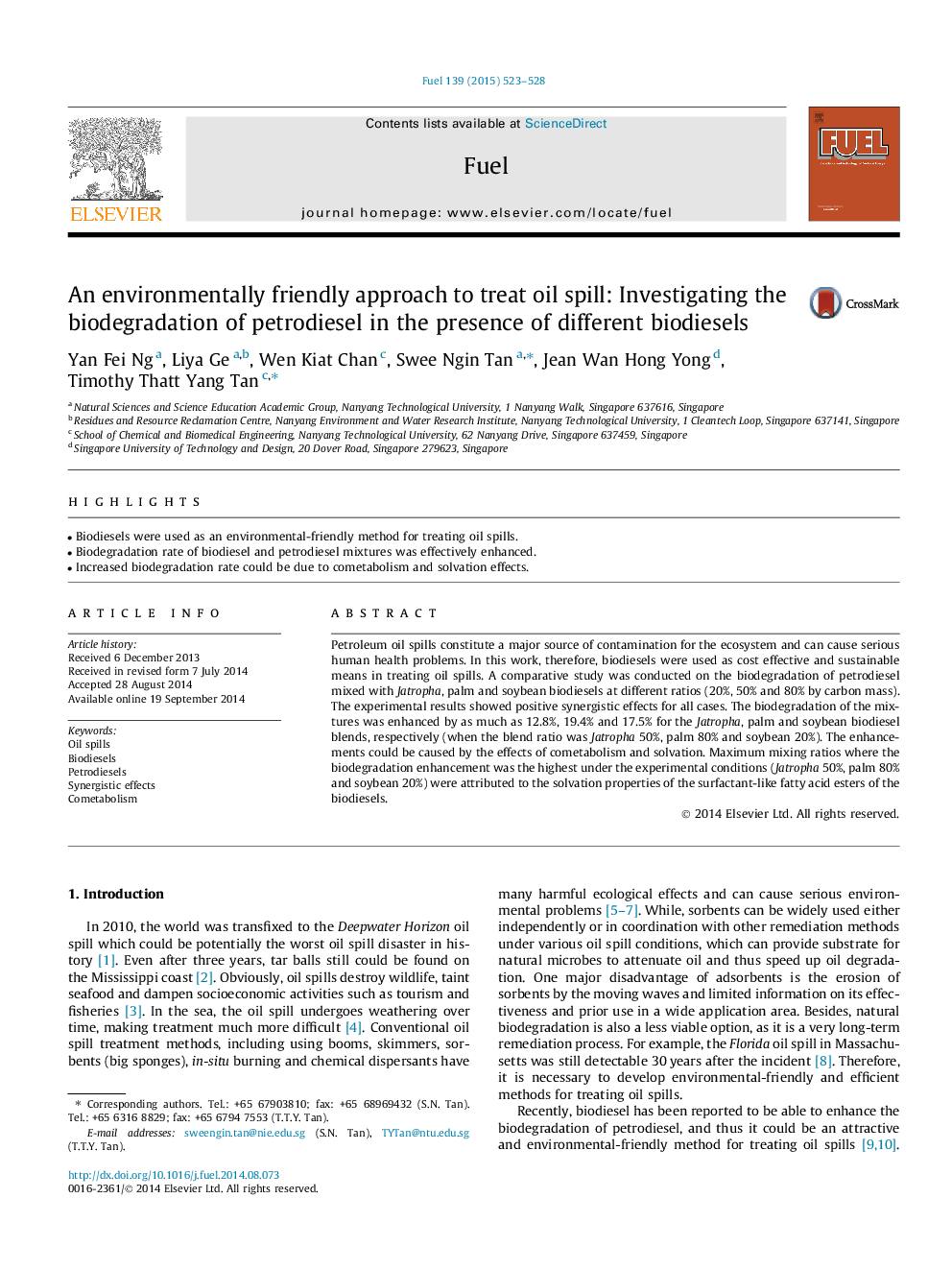| Article ID | Journal | Published Year | Pages | File Type |
|---|---|---|---|---|
| 6636554 | Fuel | 2015 | 6 Pages |
Abstract
Petroleum oil spills constitute a major source of contamination for the ecosystem and can cause serious human health problems. In this work, therefore, biodiesels were used as cost effective and sustainable means in treating oil spills. A comparative study was conducted on the biodegradation of petrodiesel mixed with Jatropha, palm and soybean biodiesels at different ratios (20%, 50% and 80% by carbon mass). The experimental results showed positive synergistic effects for all cases. The biodegradation of the mixtures was enhanced by as much as 12.8%, 19.4% and 17.5% for the Jatropha, palm and soybean biodiesel blends, respectively (when the blend ratio was Jatropha 50%, palm 80% and soybean 20%). The enhancements could be caused by the effects of cometabolism and solvation. Maximum mixing ratios where the biodegradation enhancement was the highest under the experimental conditions (Jatropha 50%, palm 80% and soybean 20%) were attributed to the solvation properties of the surfactant-like fatty acid esters of the biodiesels.
Related Topics
Physical Sciences and Engineering
Chemical Engineering
Chemical Engineering (General)
Authors
Yan Fei Ng, Liya Ge, Wen Kiat Chan, Swee Ngin Tan, Jean Wan Hong Yong, Timothy Thatt Yang Tan,
